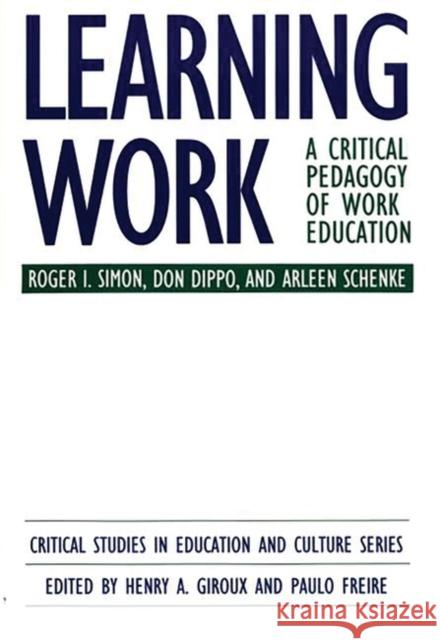Learning Work: A Critical Pedagogy of Work Education » książka
Learning Work: A Critical Pedagogy of Work Education
ISBN-13: 9780897892407 / Angielski / Miękka / 1991 / 216 str.
With increasing belief by educators that education should include some type of vocational or career-related training, concerns have arisen over just how such programs can be effectively implemented to meet the needs of the teachers, students, and community groups. Teachers and community-based educators have questioned how work education may provide students with an understanding of the realities of life in the job market and at work, while at the same time helping them determine the practices that will define their own working lives. "Learning Work" directly addresses this concern. Through discussions of teaching methods and actual lesson suggestions, the authors demonstrate how the perspective of a critical pedagogy can be used to develop a clear and principled practice of work education. Numerous examples drawn from interviews and classroom observations involving a cross-section of urban, suburban, and rural schools are included, illustrating the practical implications of a theory of critical pedagogy.
In their introduction, the authors provide a discussion of the relationship between a critical pedagogy and work education. The remainder of the book is divided into three parts, the first of which contains chapters that explore the technical issues involved in work education. Separate chapters address the notion of working knowledge, the concepts of skills and work design, and ways in which the learning potential of worksites can be more fully developed through work education programs. The second part examines social relations and includes discussions of workplace relations, occupational health and safety, the interrelationships between work and leisure, and the question of unions. Finally, the authors look at work as an exchange relation and demonstrate how work education can be used to foster self-assessment, help students in job search and salary negotiation processes, and prepare them for future work opportunities. Practical lesson suggestions are included in each section. An invaluable resource for teachers and education students, this book makes a substantial contribution to current debates regarding the place and purpose of work education in our secondary schools, colleges, and community-based service agencies.











